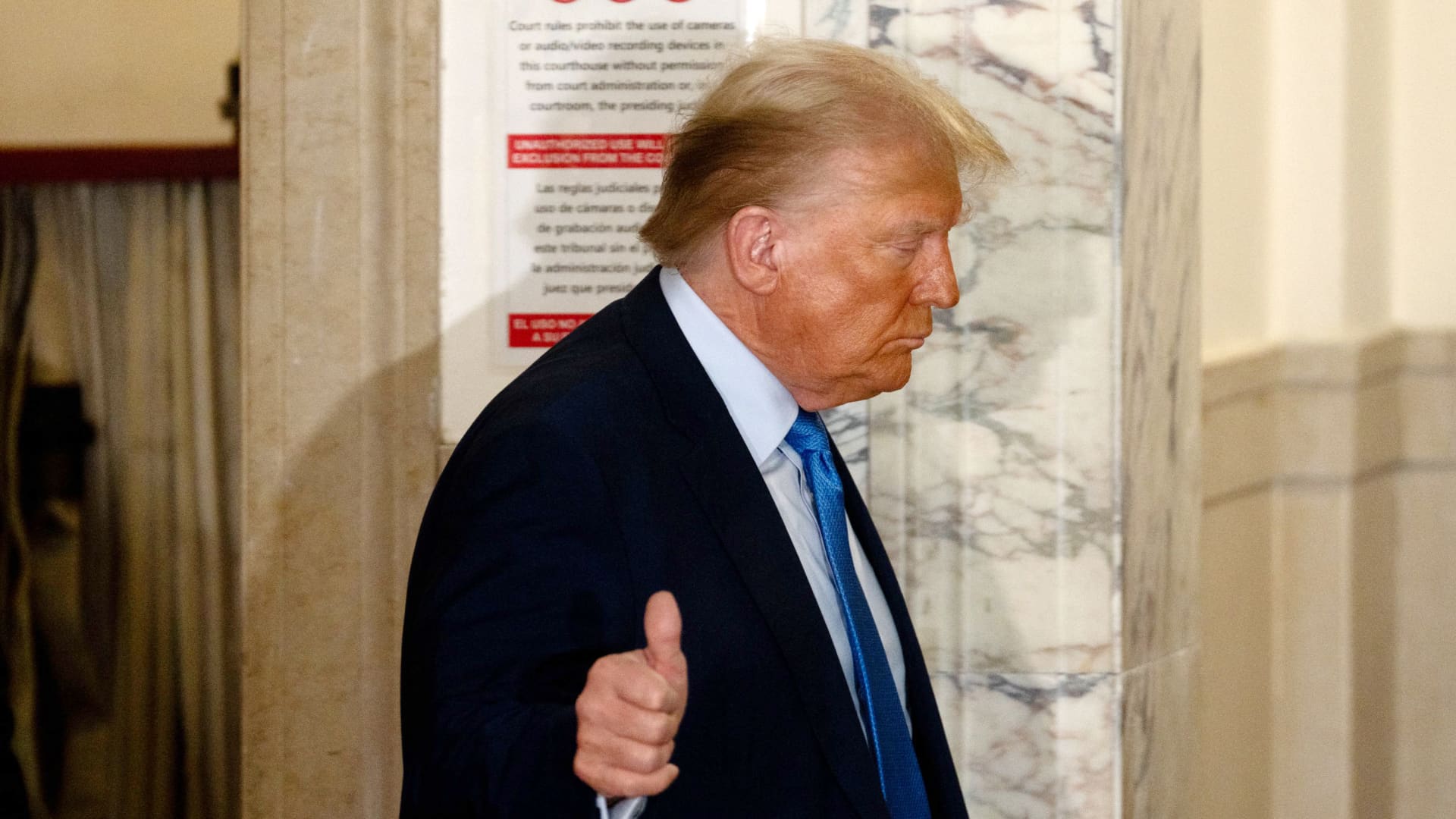The financial watchdog overseeing the Trump Organization informed a New York judge on Wednesday about $40 million in cash transfers that were not previously disclosed as required to that court-appointed monitor.
The transactions included $29 million sent to former President Donald Trump, which he used to make tax payments, Barbara Jones, the monitor, told Judge Arthur Engoron in a letter filed in Manhattan Supreme Court.
The other transfers were for insurance premiums and the $5.6 million that Trump posted in June as security while he appeals a civil jury verdict in favor of the writer E. Jean Carroll for sexually abusing her in the 1990s and for defaming her when she went public with her allegation when he was in the White House.
Jones, who is a retired federal judge, was appointed in November 2022 to oversee the financial statements of Trump’s company as part of the New York attorney general’s $250 million business fraud lawsuit against the Trump Organization, the former president, and his two adult sons.
Engoron is presiding over the ongoing civil trial of the suit against Trump, who is the clear frontrunner in the 2024 Republican presidential nomination contest.
Jones in her report Wednesday noted that under a protocol she established in April, Trump, his company and the other defendants are required to inform her when they make transfers out of Trump’s trust that have an “aggregate value in excess of $5 million.”
A review of bank statements since January shows that there were “three cash transfers exceeding $5 million each, totaling approximately $40 million,” she wrote.
“We have discussed with Defendants why these transactions were not previously disclosed,” Jones wrote Engoron.
“And I have now clarified (and Defendants have agreed) that all transfers of assets out of the [Trump] Trust exceeding $5 million must be reported,” Jones added, emphasizing the word “all” in italics.
During the opening week of Trump’s fraud trial, Engoron ordered that for each of the Trump financial entities involved in the suit, the defendants “shall provide the Monitor with advance notice” of “any anticipated transfer of assets or liabilities to any other entity.”
Trump’s lawyer, Christopher Kise, told CNBC in an email Wednesday,” As before, the report confirms the defendants continue to cooperate with the monitor and remain in compliance with the court order.”
“Also as before, the report contains no mention of suspicious activity or suspected or actual fraud, because none exists,” Kise said.
Kise’s statement referenced Jones’ last regular report to the judge, which she sent in August.
In that previous letter, Jones notified Engoron about what she described as issues of incompleteness and inconsistency in certain disclosures to lenders and others by the Trump Organization.
She said at the time that Trump and the company defended its practices in the areas she had concerns about, but noted that they also had agreed to change how they disclosed information to her given her claims.
In the new letter Wednesday, Jones wrote that since then, the defendants “have taken steps to disclose intercompany loans omitted from prior disclosure, modified footnote disclosure regarding contingent liabilities,” and also have given her all recent annual and quarterly certifications attesting to the accuracy of financial statements.
A spokeswoman for New York Attorney General Letitia James had no comment on Jones’ letter.
